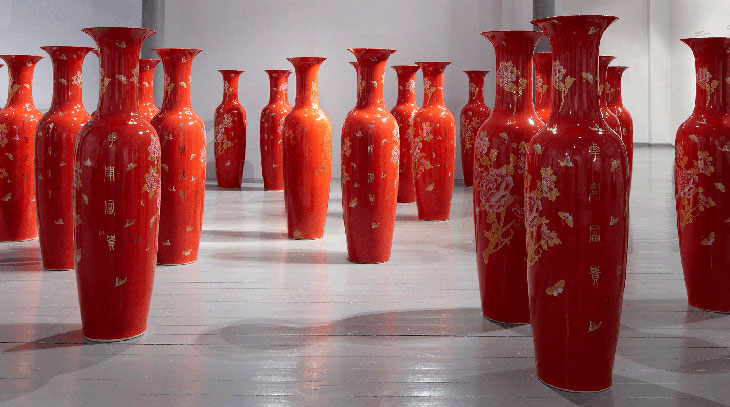At the Fitzwilliam Museum, March 2018 brings ‘Things of Beauty Growing: British Studio Pottery’ (20 March–18 June 2018), the most ambitious survey ever of the history and practice of studio ceramics – an art form in which Britain has led the way since the early 20th century. Jointly organised by the Fitz and the Yale Center for British Art in New Haven, where it opened in late 2017, it will feature over 100 vessels and other works by such revered names as Hans Coper, Lucie Rie and Edmund de Waal, while Clare Twomey’s impressive installation of monumental red pots, Made in China, will invade the permanent galleries of the museum.
Made in China (2010), Clare Twomey. © Clare Twomey

But what I am really quivering with excitement to see is another exhibition, ‘Charles I: King and Collector’, at the Royal Academy of Arts in London (27 January–15 April). Much anticipated, and never before attempted, this is a partial reconstruction of the Martyr King’s great collection, which encompassed masterpieces by Titian, Dürer, Holbein, Mantegna and Van Dyck, as well as superlative bronzes, tapestries and plates, all sold off after his execution in 1649 and now scattered in museums all over the world. The exhibition is particularly relevant to me, as next year I will move from the Fitzwilliam Museum to become director of the Royal Collection, and be responsible for looking after the works of art Charles I’s successors managed to get back or acquire subsequently! The Royal Collection is still the greatest private collection in the world, but imagine what it would have been like with all of Charles I’s masterpieces, which are coming to London from their homes in Paris, Vienna, and Madrid?
Tim Knox is Director and Marlay Curator of the Fitzwilliam Museum, Cambridge.
Keep up with Apollo’s 12 Days selection of art highlights here.


